Hey there! If you're about to embark on the adventure of sharing a living space, having a solid roommate agreement is key. It can make all the difference in keeping things harmonious and preventing misunderstandings down the line. From dividing chores to discussing how to handle guests, a well-crafted agreement sets clear expectations and boundaries for everyone involved. Curious about how to structure your own roommate agreement? Let's dive into the details!

Rent payment details
Timely rent payments are crucial for maintaining a harmonious living arrangement among roommates. The amount due for rent (ex: $1,200 monthly for a two-bedroom apartment in downtown Seattle) should be split equally among the roommates, with each individual responsible for their share (in this case, $600 per month). Payments should be made by the first day of each month to the landlord's designated account (often requiring bank transfer or check payment). Late payments may incur fees (such as a $50 late fee after a five-day grace period), affecting all tenants' responsibilities and agreements. Clear communication regarding payment methods (digital payment platforms like Venmo or direct bank transfers) is essential to avoid any misunderstandings.
Cleaning responsibilities
Cleaning responsibilities in a shared living space require clear delineation to ensure a harmonious environment. Each roommate should take turns managing tasks such as vacuuming (once a week), kitchen cleaning (after each meal), and bathroom sanitation (biweekly). Specific areas should be designated to individuals, for instance, Roommate A handles common areas like the living room and hallway, while Roommate B is responsible for the kitchen countertop and sink upkeep. A cleaning schedule chart can aid in tracking responsibilities, ensuring that all areas remain tidy and organized. Regular check-ins, perhaps every month, can facilitate discussions on any needed adjustments or concerns regarding cleanliness expectations.
Guest policy
Creating a roommate agreement for guest policy is essential for maintaining harmony in shared living spaces. The guest policy should specify the maximum duration guests can stay (e.g., 3 consecutive nights) without prior approval from all roommates. It is important to outline expectations regarding overnight guests, including notification requirements (at least 24 hours in advance). Setting boundaries about guests in common areas ensures comfort for all. Responsibilities for guest behavior and noise levels during late hours (such as after 10 PM) should be clearly established to prevent disturbances. Additionally, addressing situations for frequent or long-term guests can help avoid misunderstandings. This structured approach fosters an environment of respect and consideration among roommates.
Utilities distribution
Clear and concise agreements regarding utilities distribution can establish a harmonious living environment among roommates. Utility bills, encompassing electricity, water, gas, and internet services, should be divided equitably based on usage or a predetermined equal split, depending on mutual agreement. Monthly expenses can average around $200-$300 per roommate, depending on the locality, such as in urban areas like San Francisco or New York City, which often have higher utility costs. Payment deadlines, typically set for the first week of each month, should be noted to avoid late fees or disruptions in service. Methods of payment, such as Venmo, PayPal, or direct bank transfers, must be agreed upon to facilitate efficient transactions. Regular discussions, at least once per quarter, can help address any concerns related to utility usage, fostering cooperation and accountability among roommates.
Conflict resolution process
A well-defined conflict resolution process plays a critical role in maintaining a harmonious living arrangement among roommates. Clear guidelines help address disputes quickly and effectively, fostering a positive atmosphere in shared spaces. Each roommate should agree on a designated communication method, such as weekly meetings or a group chat, to discuss issues openly. Establishing a tiered approach can also be beneficial, beginning with informal discussions to resolve minor disagreements before escalating to mediation with a neutral third party if necessary. Documenting each step can help track resolutions, ensuring accountability. The process should be revisited periodically, allowing adjustments based on evolving needs or experiences, ensuring all roommates feel heard and respected.
Letter Template For Roommate Agreement Terms Samples
Letter template of roommate agreement regarding shared responsibilities.
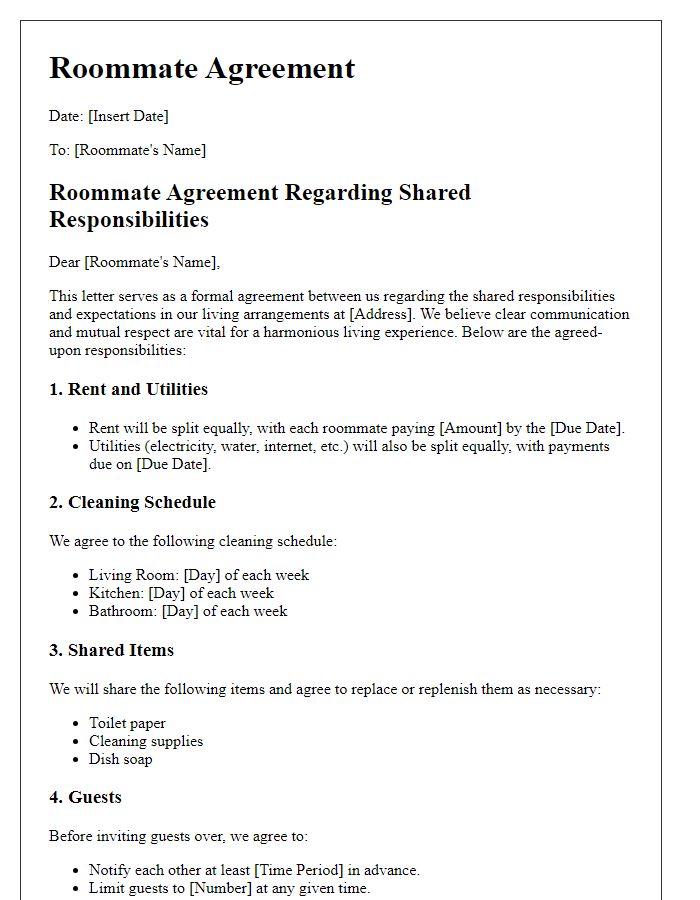
Letter template of roommate agreement for cleaning and maintenance duties.
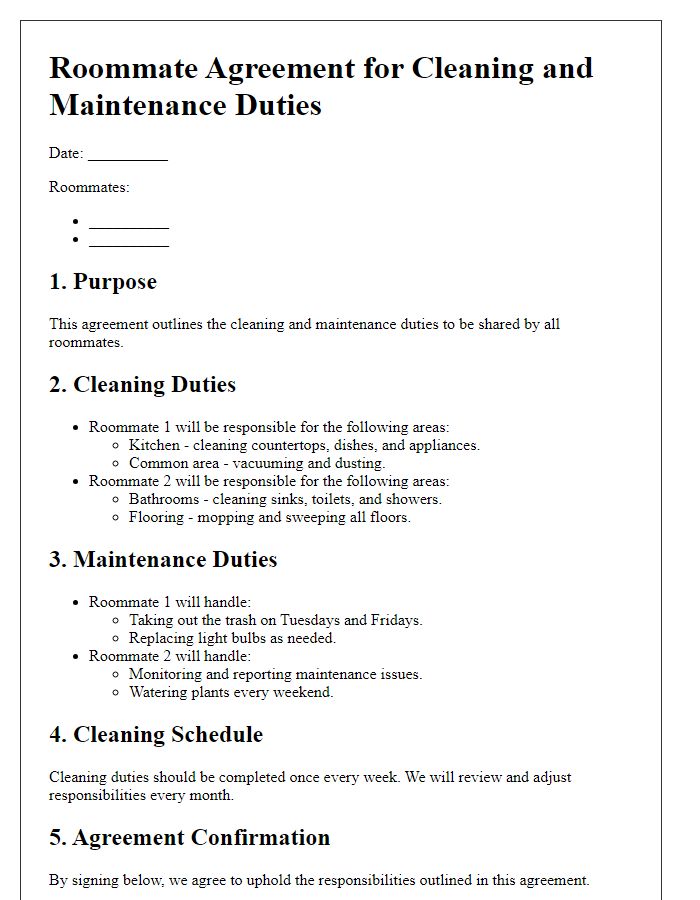
Letter template of roommate agreement for conflict resolution procedures.
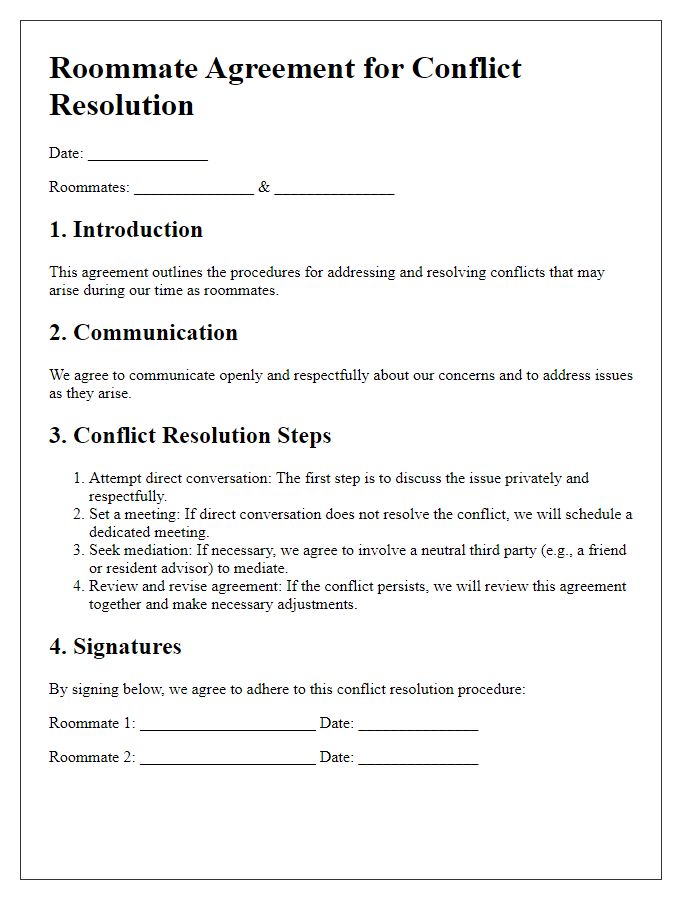


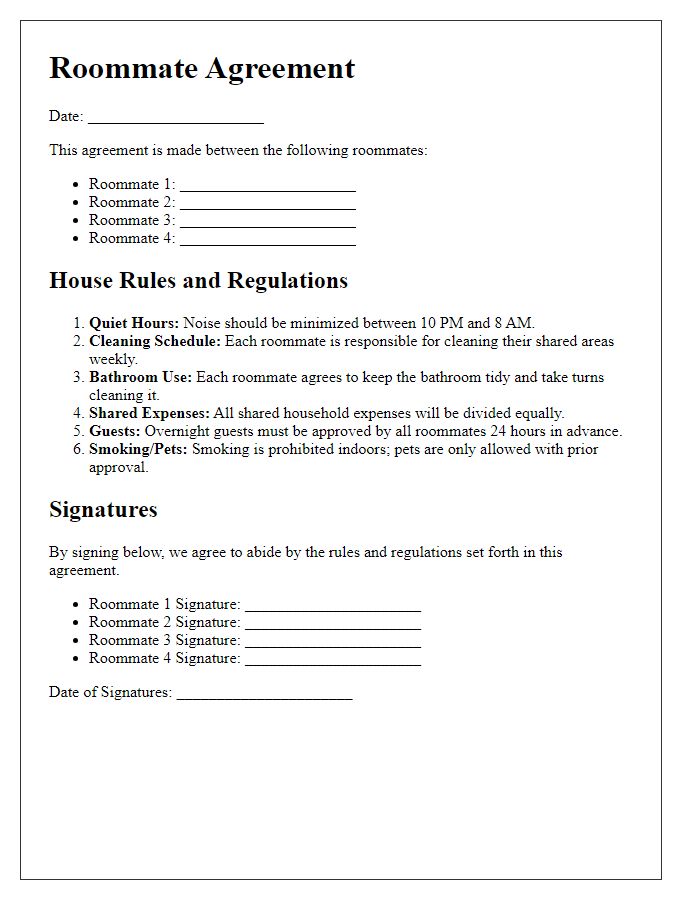
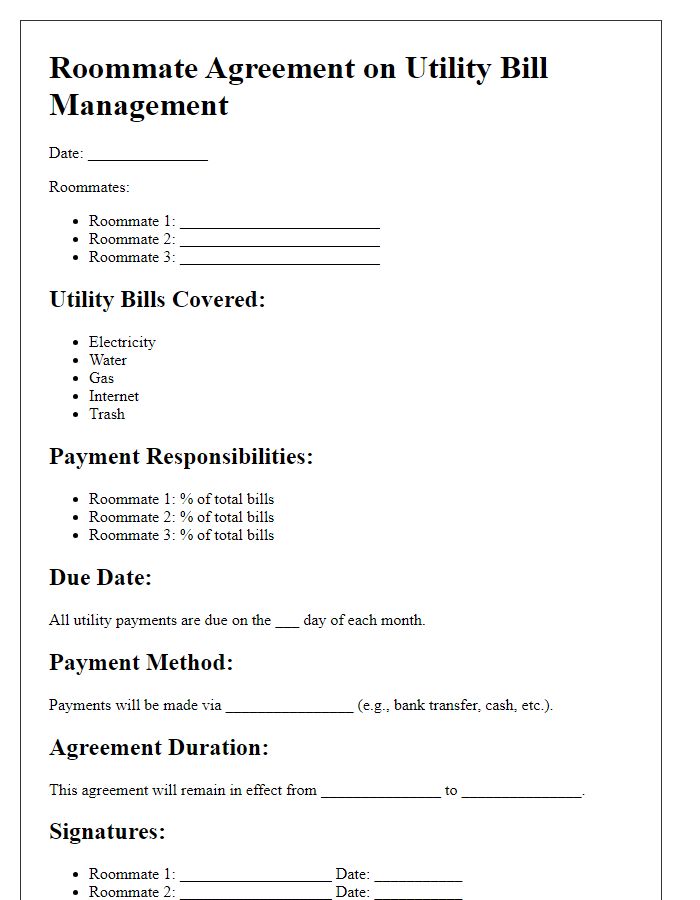
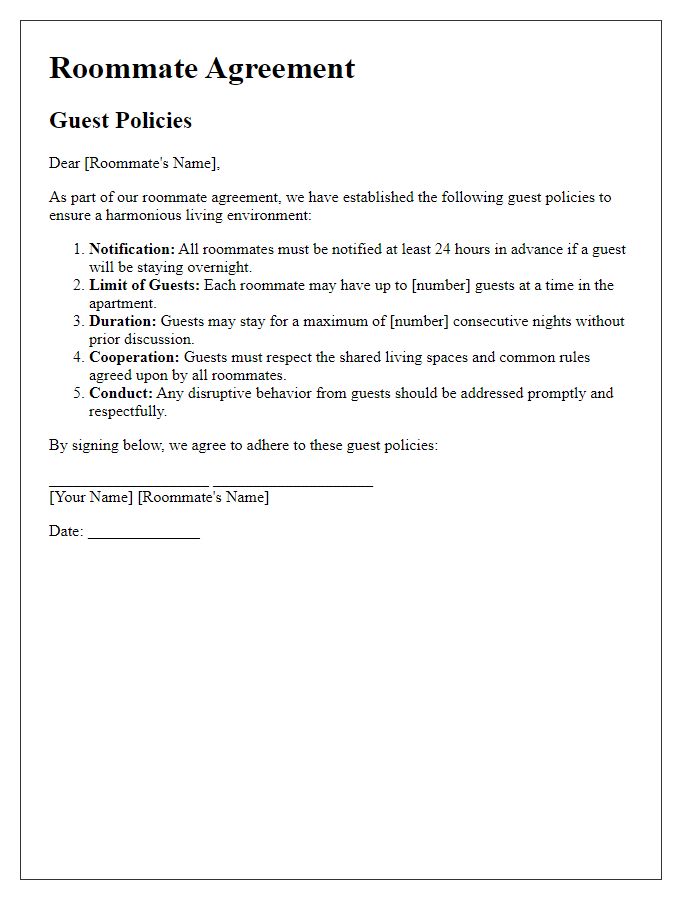
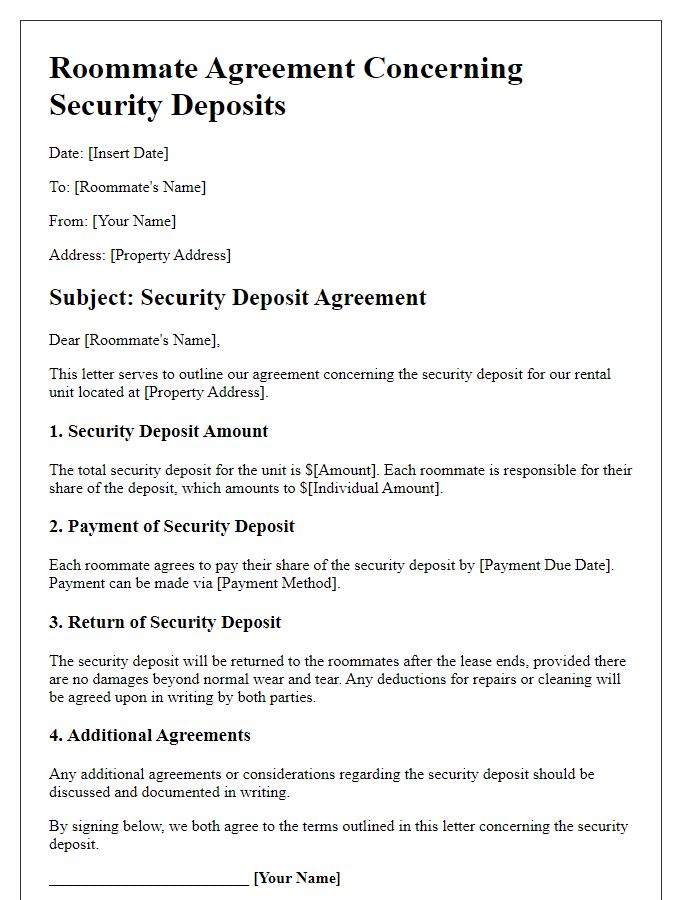
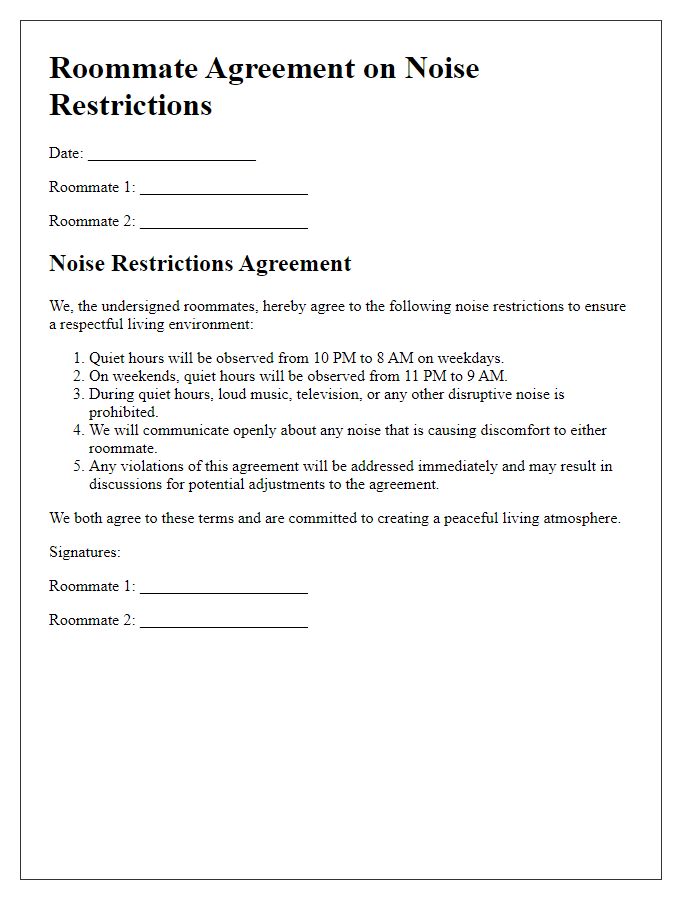
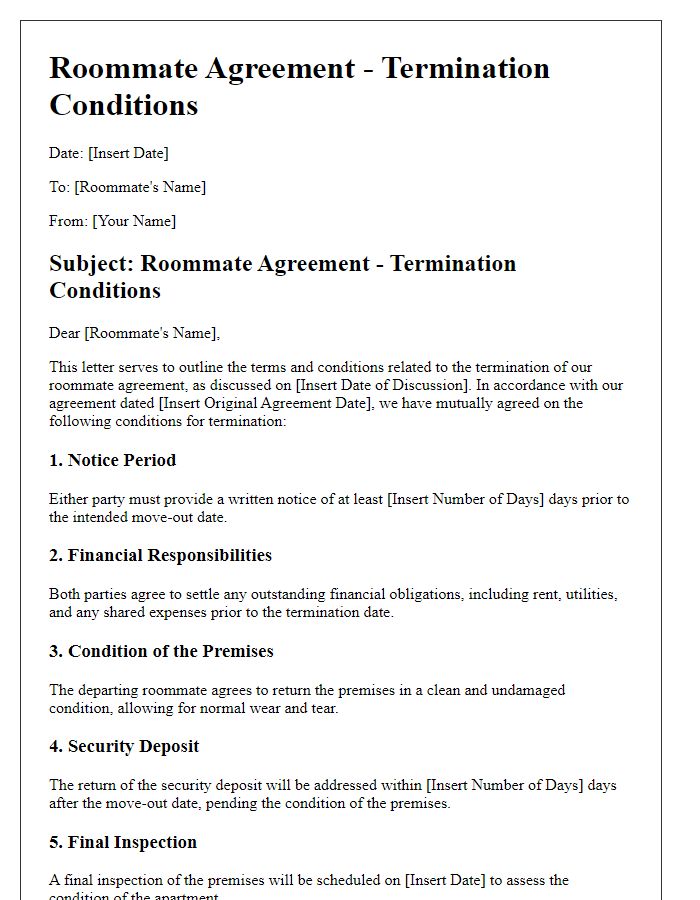


Comments